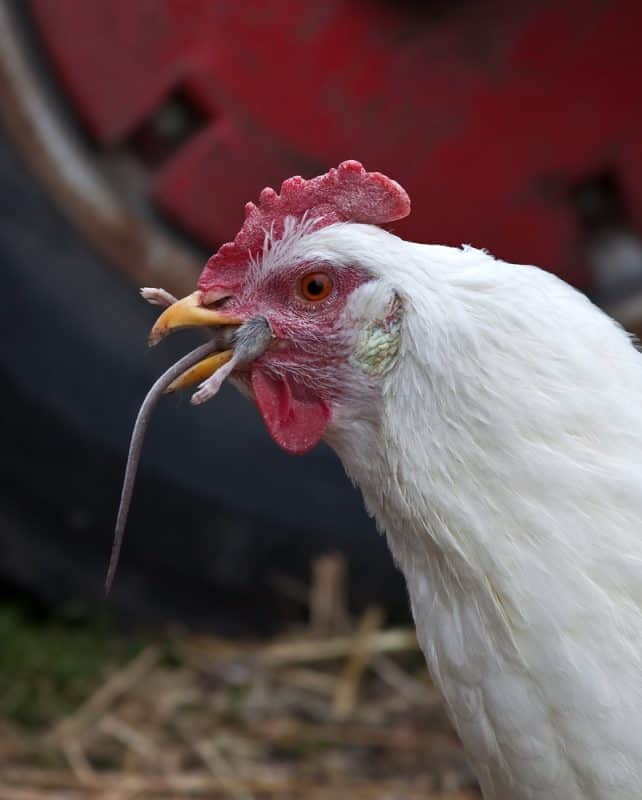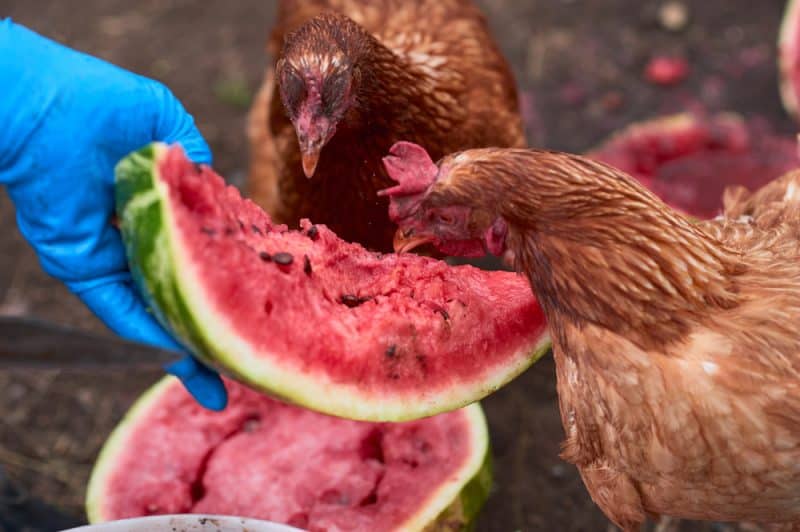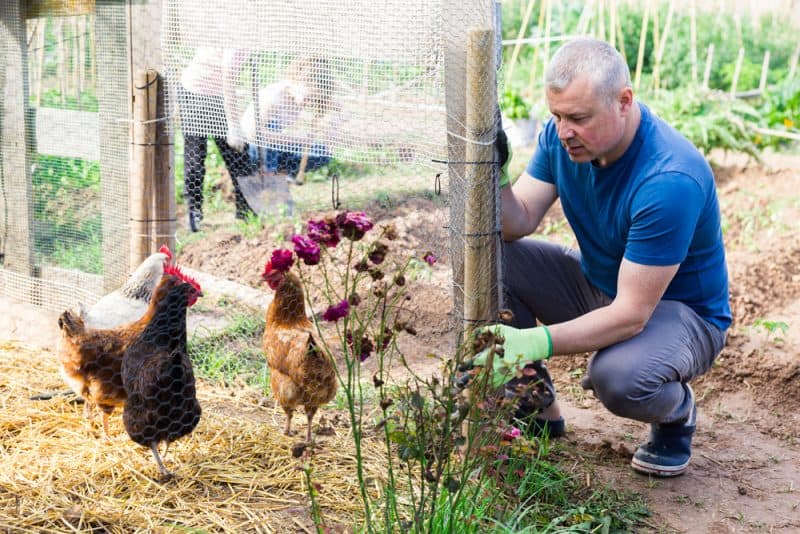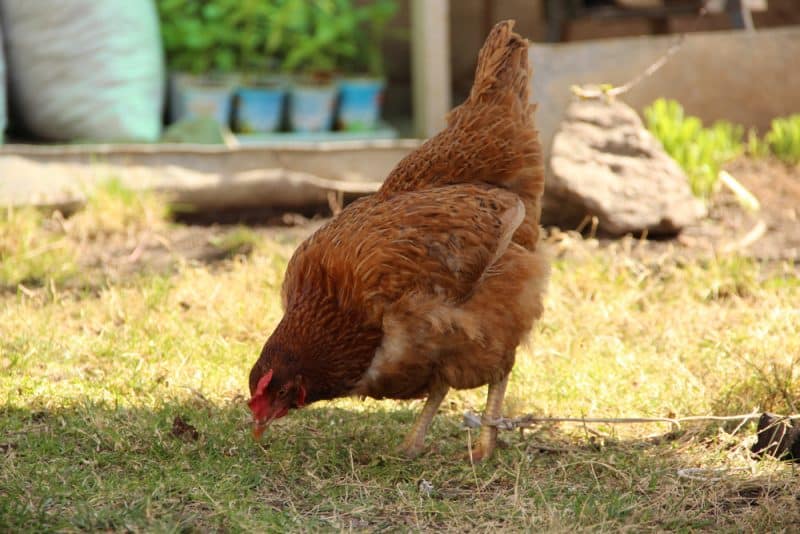What Happen if You Feed the Mice
Are there mice wreaking havoc on your chicken coop?
Most of the time, a mouse in the chicken house is nothing to worry about. Although you might be freaked out by the pitter-patter of tiny little mice feet in your coop, your chickens will likely remain unfazed.
However, you might be astonished (or perhaps repulsed!) to see that your chickens actually invite these little intruders with gusto – because every time they dart out from hiding in the coop, your chickens seize the opportunity to gobble them right up.
Gross, right?
To you, perhaps – but to chickens, mice are tasty treats.
However, knowing what you know about the various pathogens that mice can carry, you might be nervous about allowing your chickens to snack on errant rodents. Fortunately, there's not much that you need to worry about – I'll tell you why it's not that dangerous in this article and hopefully set your mind at ease.
Do Chickens Eat Mice?
The short answer? Yes. Chickens are opportunistic omnivores, meaning they'll eat just about anything they can get their hands on (and when I say anything, I do mean anything – one time, I came home to find a few free-ranging chickens nibbling on the insulation on the side of my house).
Chickens will eat mice of all shapes, sizes, and ages. They will eat baby mice – which are smaller and easier to catch than adult mice – along with small rats if they find them.
Chickens will eat mice whole or they might use their beaks to break a mouse up into smaller chunks. This will depend on the size of the rodent as well as whether one or more chickens are trying to eat the mouse.
You may notice quite a few games of "chicken football" once the other members of your flock realize what the lucky hen has found too.
In addition to mice, chickens will happily gobble up foods like lizards, frogs, bugs, and other rodents and small animals. Allow your chickens to free-range and they will catch and eat their own food with gusto!
Not only is it totally normal for chickens to eat mice, but it's also fairly common. That's because mice frequent chicken coops and run quite regularly, heading there to find bits of spilled feed and other tasty morsels. It's like an all-you-can-eat buffet (until the chickens find them of course).
Unlike rats, other rodents who tend to hang out where chickens can be found, mice are small and the perfect size for chickens to chase, catch, and eat.
Is It Bad for Chickens to Eat Mice?

Now that you know that chickens can eat mice, the next question you might ask yourself is whether they should.
It's not necessarily bad for chickens to eat mice but you shouldn't go out of your way to provide them with mice to eat, either.
That's because mice can carry germs and various pathogens that can make you and your chickens sick. A diseased mouse could make a chicken sick, as could a mouse who has ingested some form of rat bait or poison.
Mice could also harbor parasites that will make your chickens ill, too. If you notice your chickens eating mice, you don't necessarily have to stop them – mice can be a decent source of protein and other nutrients for your flock, not to mention free entertainment – but you may have to consider deworming them and checking them regularly for external parasites.
How to Get Rid of the Mice in Your Chicken Yard

It's not bad for chickens to eat mice, but if you're asking yourself whether your chickens can safely eat mice, there's a good chance that you've noticed quite a few of these furry little rodents hanging around your chicken yard.
That could indicate a larger problem.
If mice are hanging around, you probably have a sanitation issue that needs to be addressed. The mice are attracted to something there and are frequenting the chicken coop despite the inherent risk of being eaten by a chicken. Whether it's food, water, or shelter, they're after something.
Of course, mice will eat your chicken feed, too – which can transmit diseases to your chickens and increase your overall feed bill.
Here are some tips to help get rid of any mice that might be hanging around your chicken yard.
1. Be Wary of Larger Rodents
Mice are generally not problematic but other rodents, like rats, can be. Rats will steal eggs or can even eat sleeping chickens (though this is less common with adult chickens and more likely with young chicks or pullets).
Generally, mice are after your food and not your chickens. However, if you're attracting mice, then there's nothing saying that you aren't going to attract bigger pests, too – so it's important to make sure the issues below are addressed.
Also, make sure your nesting boxes are rodent-proofed. Mice usually won't go after eggs but rats will. Elevate the nesting boxes and use high-quality wood or other nesting box materials that will be harder for rodents to chew through.
You may also have to sprinkle dried mint around the coop or nesting boxes. The jury's out on whether this is actually an effective way to repel rodents, but at the very least, it will make your coop smell a lot fresher!
2. Limit Food Spillage
Food spillage is the number one thing that attracts mice and other rodents to a chicken coop. Make sure all feed is cleaned up promptly.
Keep food in sealed containers (ideally metal ones instead of plastic or the original bags, which mice can easily nibble through).
The same goes for water. Water can also attract rodents, especially in hot, dry weather. Consider using automatic watering systems that are equipped with chicken nipple drinkers. These will provide your chickens with all the water they need without drawing in rodents.
3. Check for Gaps in the Coop and Fence

Take some time to inspect your chicken coop, fences, and run areas thoroughly. Mice will easily gnaw through just about any kind of material (including chicken wire). Using galvanized steel wire can help prevent this somewhat though often not entirely.
Then, seal up any cracks or holes you find. Remember that mice can fit through holes the size of pencil erasers! Mice can chew through silicone caulk so instead, use steel wool, lath screen, cement, or hardware cloth to fix large holes (you can always caulk around them to make them weather-tight).
Build a high fence that is at least 18-inches tall and consider elevating your coop. This can help keep rodents out, too.
4. Provide Limited Amounts of Treats
It's a good idea to limit the number of treats you provide your chickens anyway since they should just be a compliment and not a substitute for formulated chicken feed.
However, if you offer treats, make sure you're giving them just a small amount rather than ready-access, treats on-demand. Nix the treat dispenser toys, too. Although these can be fun, they can attract rodents and other pests, like insects.
Should I Let My Chickens Eat Mice?

No matter how disciplined you are about keeping your chicken yard clean and limiting food spillage, there's still a good chance that you'll have a mouse here or there from time to time.
While you might not love the idea of letting your chickens nosh on mice, know that they can actually be a nutritious source of food for your flock. To make sure your chickens stay healthy, do your best to limit mouse populations and don't treat them with poison, as this could make its way to your chickens via the mice.
Otherwise, don't worry. Although a mouse might not be your first choice when you're looking for an afternoon snack, for a chicken – there's nothing better.
Was this article helpful?
Yes No
gundersoncyricionsien.blogspot.com
Source: https://morningchores.com/chickens-eating-mice/
0 Response to "What Happen if You Feed the Mice"
Post a Comment